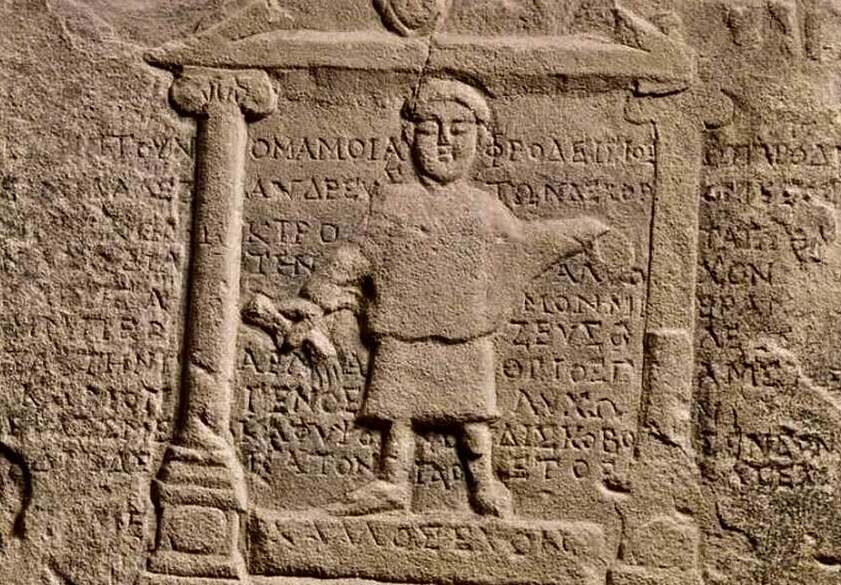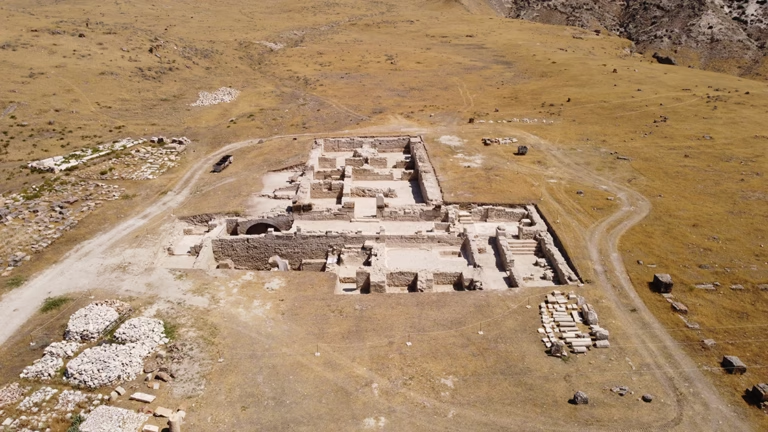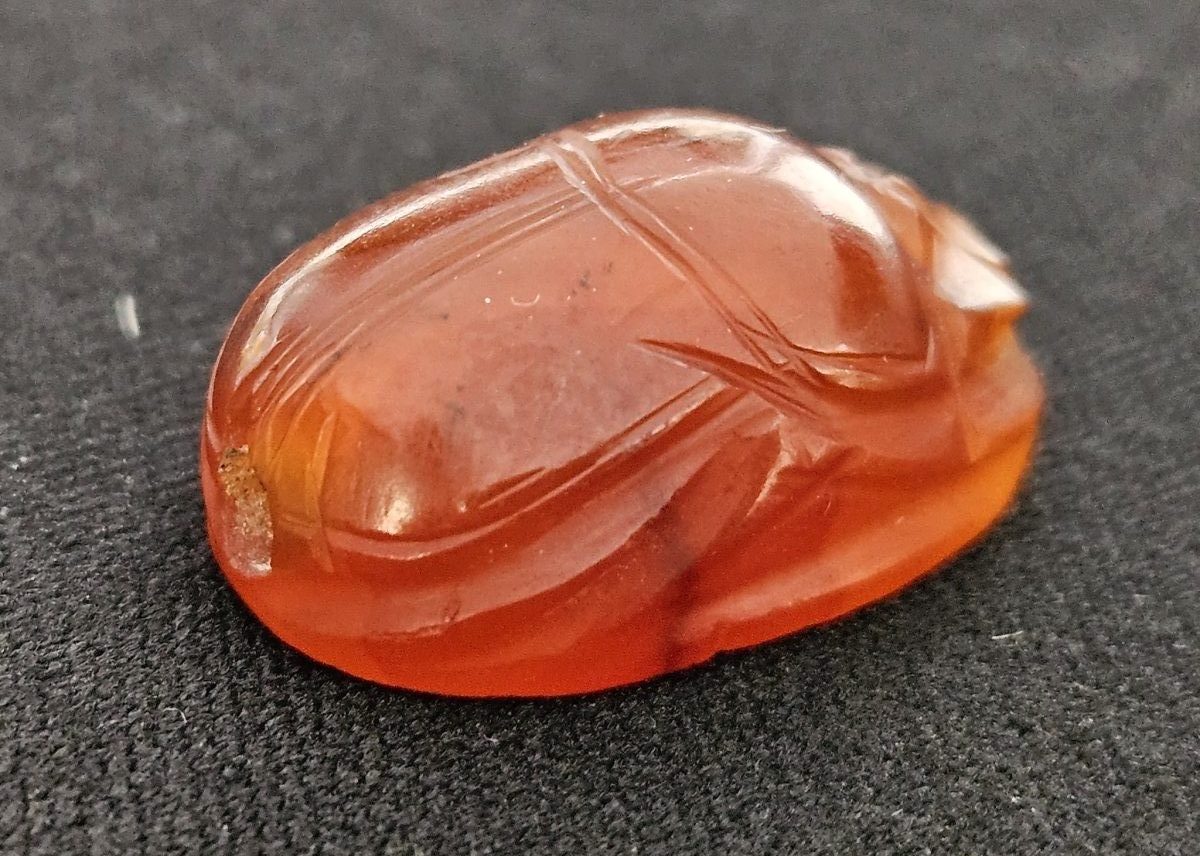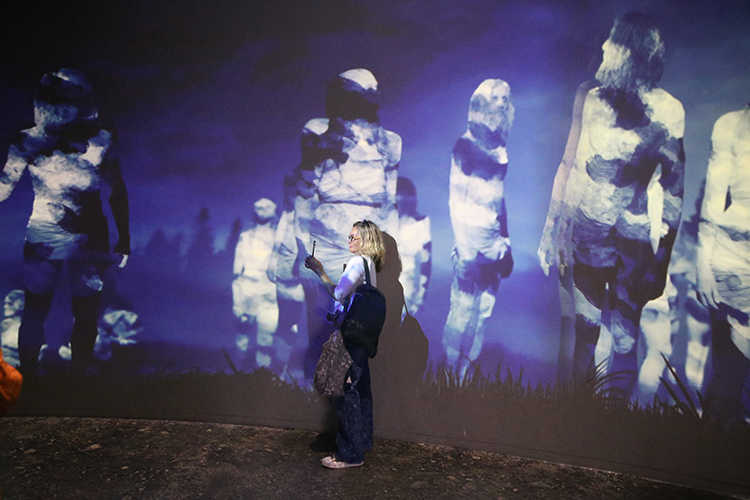Another tale has been added to the legendary love stories of Anatolia. An 1800-year-old tombstone, discovered in the ancient city of Alexandria Troas in the Ezine district of Çanakkale, sheds light on a scandalous love affair and murder from the Ancient Roman period. This tombstone adds a dark chapter to Anatolia’s romantic history, which ranges from Helen’s love that inspired the Trojan War to Ferhat’s mountain-piercing love for Şirin.
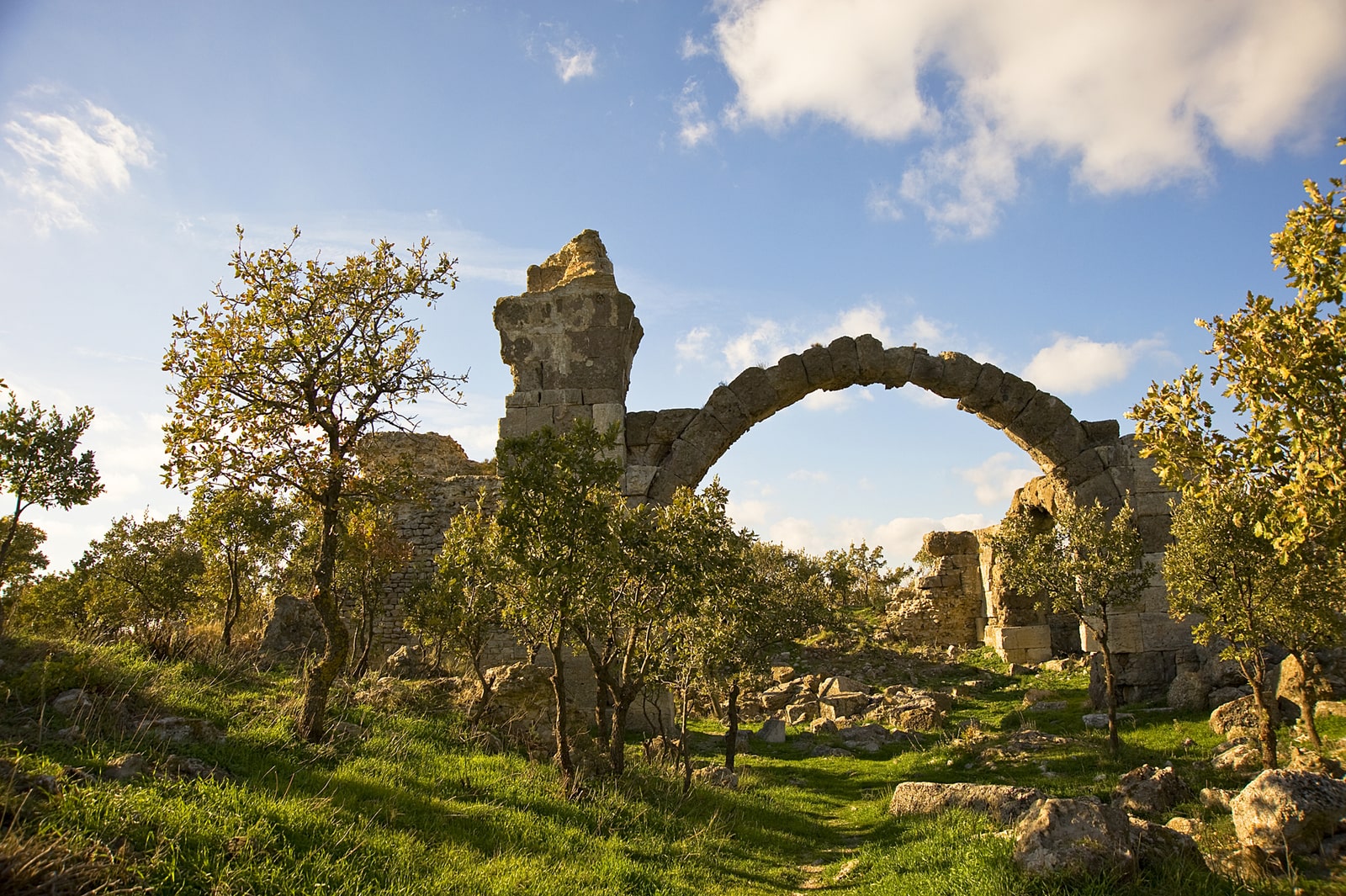
Aphrodisios’ Tragic End: A Love Triangle and Murder
According to the inscription on the marble tombstone, a choir leader named Aphrodisios was brutally murdered by his wife and her lover, Lychon. The tombstone is a farewell letter written from Aphrodisios’ perspective. Complaining to his wife and murderer, Aphrodisios expresses his sadness for leaving life at a young age.
Words of Complaint on the Tombstone
The words on the tombstone, examined by Roko Rumora, a doctoral candidate in Art History at the University of Chicago, reveal Aphrodisios’ tragedy:
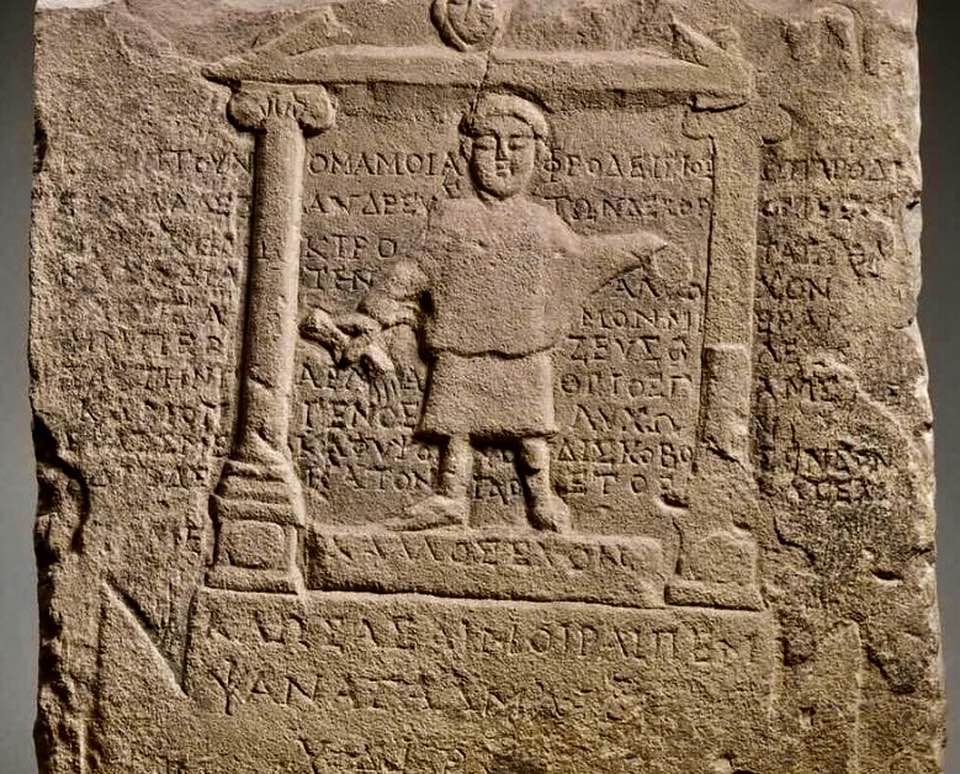
“Passerby, my name is Aphrodisios; a citizen of Alexandria Troas and leader of the chorus. I died very pitifully because of my filthy adulterous wife (whom Zeus will destroy). Her secret lover, Lychon, a member of my own household, killed me in my youth. He threw me from the heights like a discus. I was twenty years old, full of beauty, when the Moirai (Fates) spun my destiny and sent me to Hades.”
Alexandria Troas: A Living Witness to Ancient Rome
Founded in the 3rd century BC, Alexandria Troas became an important trade center during the Roman period. This tombstone shows that the ancient city was not only a center of commerce but also a stage for social and personal dramas.
The Tombstone’s Journey and Significance
Currently exhibited at the Louvre Museum, efforts are underway to bring the tombstone to Turkey. This artifact illuminates the social relations, love, betrayal, and murder of the Ancient Roman period.
